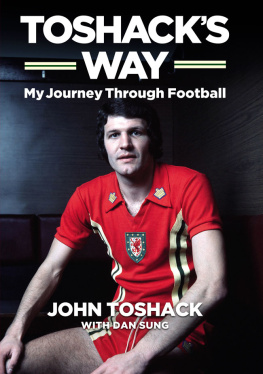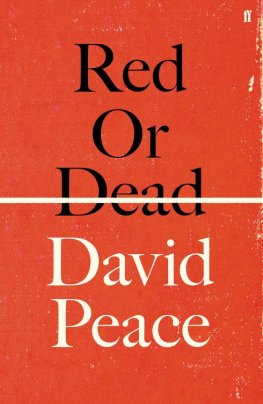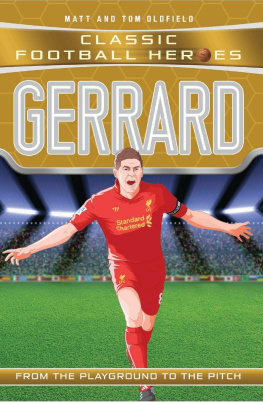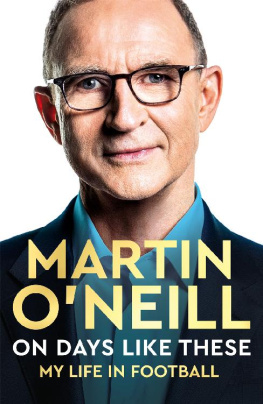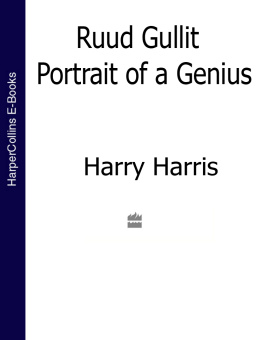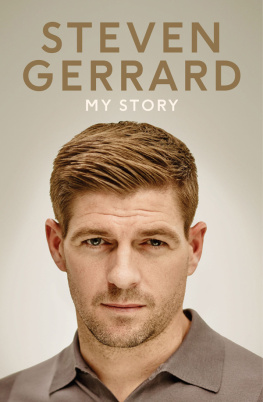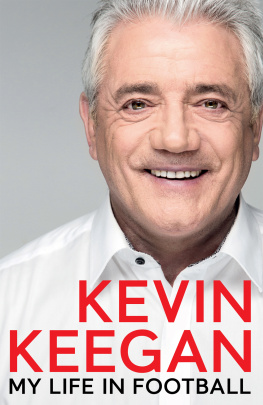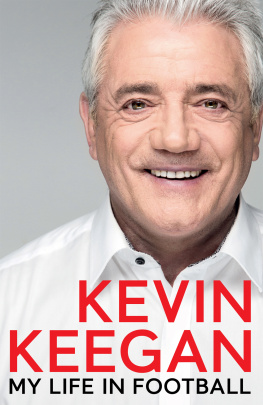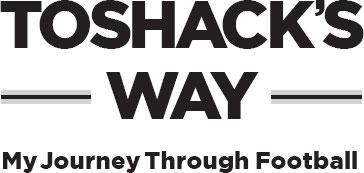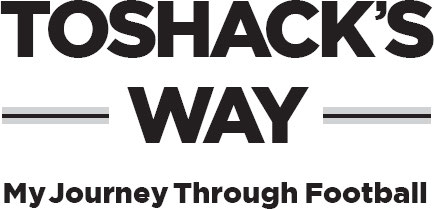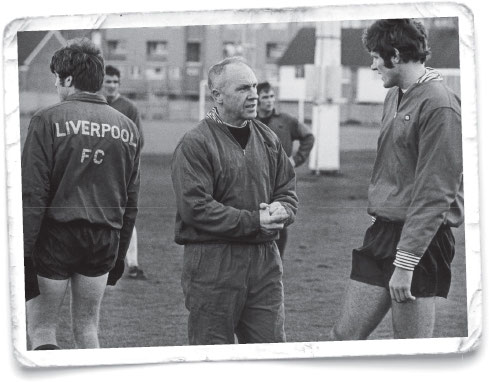JOHN TOSHACK
WITH DAN SUNG
First published as a hardback by deCoubertin Books Ltd in 2018.
First Edition
deCoubertin Books, 46B Jamaica Street, Baltic Triangle, Liverpool, L1 0AF.
www.decoubertin.co.uk
eISBN: 978-1-909245-71-6
Copyright John Toshack and Dan Sung, 2018
The right of John Toshack and Dan Sung to be identified as the co-authors of this work has been asserted by them in accordance with the Copyright, Designs and Patents Act 1988. All rights reserved. No part of this publication may be reproduced, stored in or introduced into a retrieval system, or transmitted, in any form, or by any means (electronic, mechanical, photocopying, recording or otherwise) without the prior written permission of the publisher. Any person who does any unauthorized act in relation to this publication may be left liable to criminal prosecution and civil claims for damages.
A CIP catalogue record for this book is available from the British Library.
Cover design and typeset by Leslie Priestley.
Printed and bound by CPI.
This book is sold subject to the condition that it shall not, by the way of trade or otherwise, be lent, resold, hired out, or otherwise circulated without the authors prior consent in any form of binding or cover other than that in which it was published and without a similar condition including this condition being imposed on the subsequent purchaser.
Every effort has been made to contact copyright holders for photographs used in this book. If we have overlooked you in any way, please get in touch so that we can rectify this in future editions.
In memory of Bill Shankly.
Contents
List of Illustrations
Foreword by Xabi Alonso
I WAS SIX YEARS OLD WHEN REAL SOCIEDAD WON THE COPA DEL REY. I dont remember watching the game and I was too young to remember the street parties but everyone in San Sebastin knows the footage of that penalty shootout like they were there in Zaragoza in the stadium themselves. Every player who stepped up to take one of the kicks against Atltico Madrid that day, and the goalkeeper Luis Arconada, are heroes to Sociedad fans, and we consider John Toshack one too.
John is a very important figure to both Real Sociedad and to the city of San Sebastin. He is very popular because of his personality. It is always noticed when John is around because he has so many different perspectives and opinions about so many things because of what he achieved. He loves it there too. As well as managing the club three times, for a total of more than eight years, he also had a column in the local newspaper and wrote a great book in Spanish about his first years in the city called Diario del gals diary of a Welshman which most of us from there have read. He is a very charismatic person for us.
I was lucky enough to play for some very, very good managers during my career and I would include John as one of those, for sure. He was so important for me. He gave me my first chance to prove myself and, as a football player, you need someone that first time to trust in you and to see something different that you might bring to the game. Not every manager has the ability to do that. In my case, it was John who was crucial to my career because, if he hadnt put that trust in me, I dont know what would have happened.
I was just 18 when I started working with John and, actually, the situation at Real Sociedad at the time was quite complex. I was on loan at Eibar along with a young striker called Joseba Llorente and the manager of Real Sociedad was my father. The team was not doing so well. My father resigned and John was called back to San Sebastin for the third time in his career with the job of rescuing the club from relegation, and his first move was to bring back Llorente and me from our loan.
John saw something in me and he put me in the team as a central midfielder, which was incredibly brave considering the importance of the position. He tried to make me a little bit quicker than I was but it really didnt work. I was no quicker at 18 at the beginning of my career than I was at 35 at the end of it, or at any point in between, but that didnt matter. I had other qualities and thats what John saw. If youre not fast, then you need to have that vision, that clear anticipation about whats going to happen. Then you work and the routine gives you more fluidity to take those decisions and your mind becomes quick and so does what you do with the ball, even if your legs are not.
John gave me a lot of responsibility and that made me want to prove myself and improve. It was a big call for John. We stayed in La Liga and those first months were incredible for me. John was able to unite the foreign players, the Basque players and the youngsters under one banner very quickly because of his experience in football as well as the region.
John and I have followed similar paths in our careers at times and, for sure, the strong connection between Liverpool and Real Sociedad played a part in my move to Anfield. To me, Liverpool was familiar because of what John had done as a player there and because of the story of his gesture in that special game when he returned with Swansea, as a manager, just after Bill Shankly had died.
Liverpool was a different place when I was there. I was with Rafael Bentez and the long line of Boot Room managers was over by then, so I didnt recognise the training methods which John had used when I got to Melwood. I wouldnt have known the history of Liverpool like I did without John and he came to watch me play at Anfield some years after we had worked together. It was amazing to be there together with him in that context.
*
Prologue:
Learning more from defeat than victory
IT WAS AT THE CLIFTON HOTEL, IN SOUTHPORT, IN MARCH 1982, WHEN Peter Robinson and John Smith offered me the job as manager of Liverpool Football Club for the first of two occasions in my career. After three European Cups, four league titles and nearly seven years in charge, Bob Paisley was set to step down and, having taken Swansea City from the depths of the Fourth Division to the top of the First within four years, I was a natural choice to take charge of the club where Id made my name as a player and won nine winners medals in the process.
Id left Liverpool still a young man at just 27 years of age with what would normally be plenty of years as a player still ahead of me, but circumstances had dealt me a different set of cards, setting me on the path to management instead.
For all the work Id done in South Wales, for everything Id built down there, Liverpool was a very special club to me. Anyone whod played under Bill Shankly and Bob Paisley had been very lucky. It had been a footballing education there like no other and, if Im honest, a lot of what I did at Swansea I did with the thought at the back of my mind that one day Liverpool would come back for me. On that day in 1982, they had.
I hadnt always gotten on famously with Bob but it was him whod recommended me for the position and, when I walked out of that meeting, I left thinking that Bob would finish out the season and Id take over the following year. But thats not the way things worked out. Almost immediately, Bob woke Liverpool up from the clubs less than glittering form that season and, in doing so, I can only guess that he woke something in himself as well. With his ambition renewed, he went on to mastermind another two league titles and as many League Cups. Meanwhile, everything for me went downhill at Swansea. At the time of that meeting, my stock as a manager had never been higher. Swansea were riding high in the First Division and considered dark horses in the title race. Just eighteen months later, everything would fall apart but, to paraphrase Bill Shankly, sometimes you can get more out of a defeat than you can a victory.

